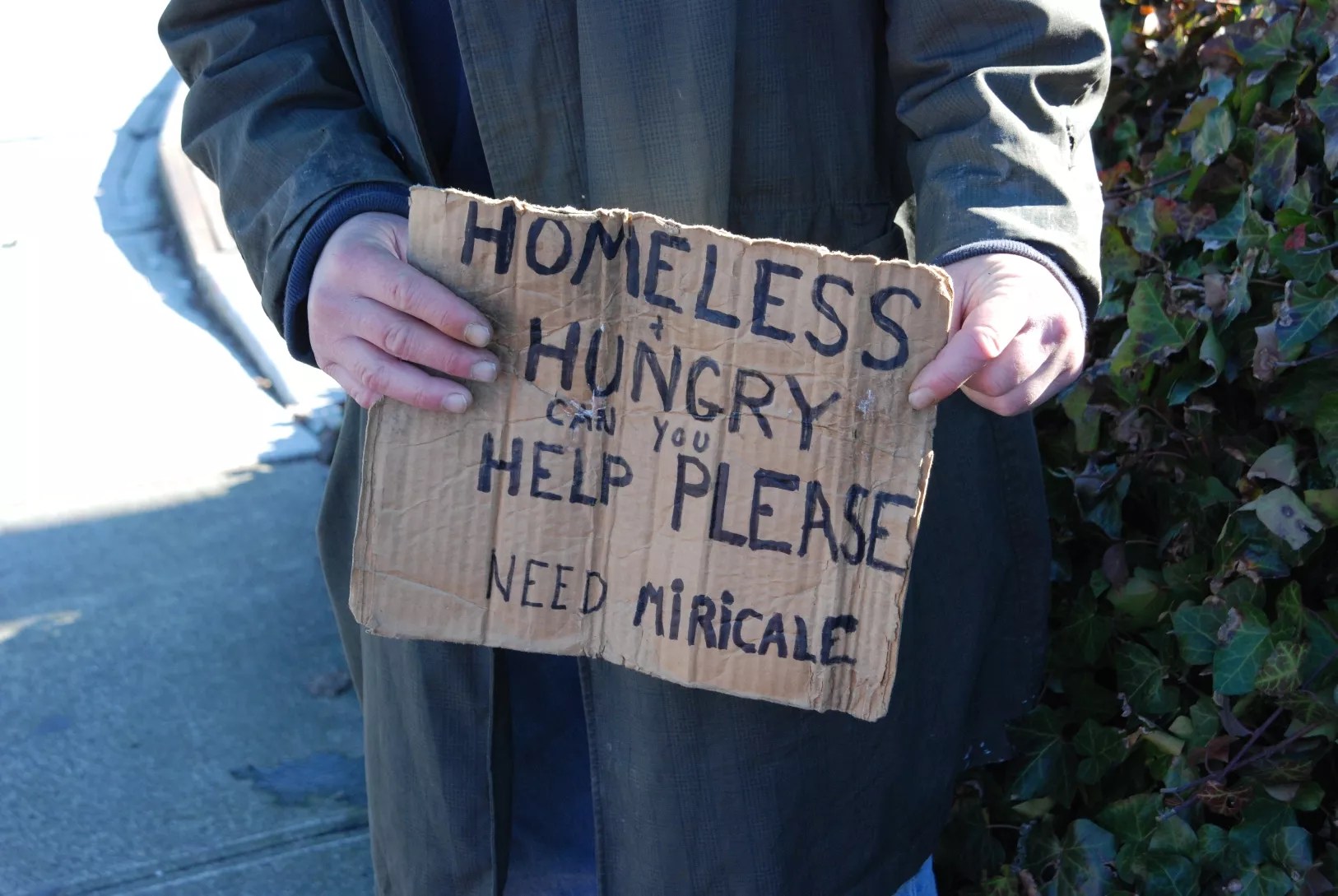

Audio By Carbonatix
A federal judge has put a hold on Fort Lauderdale’s anti-panhandling law, rejecting the city’s attempt to paint beggars as a public-safety hazard.
The nine-year-old ordinance prohibited panhandlers from asking for money in public parks, near sidewalk cafés, and in the vicinity of businesses and ATMs, among other places. Panhandling in the restricted areas was punishable by up to 60 days in jail and a $500 fine.
The Florida Justice Institute (FJI), a civil-rights advocacy firm, challenged the law in federal court this past January on behalf of Mark Messina and Bernard McDonald, two longtime Broward residents who relied on panhandling for income.
More than 100 people were cited or arrested for violating the ordinance in the past two years, according to the FJI; most were homeless residents targeted by police for asking for money in public.
Last week, U.S. District Judge Roy Altman handed down a preliminary order blocking the law on First Amendment grounds. He found that Messina and McDonald made a strong argument that the ordinance was an unconstitutional restriction on speech.
FJI’s lead attorney, Ray Taseff, hailed the decision, saying the law criminalized poverty and was a drain on police resources.
“We’re talking about locking up and arresting people who are poor, have no place to go, and are simply in public places asking for help,” Taseff tells New Times. “If the very politician who voted for this law has the right to stand on the sidewalk or the side of the road and ask you to vote for him, then a poor person has the same right to ask you to help them out by giving them a buck.”
The order is not a final decision but will remain in place as court proceedings continue in the case.
According to the judge, the city was hard-pressed to justify why homeless people should be banned from soliciting donations in public places, when religious recruitment, political petition-gathering, and other forms of solicitation are allowed on the same properties.
Per the Fort Lauderdale ordinance, folks could approach a stranger on the street and say nearly whatever they wanted – as long as they didn’t “say something to the effect of ‘I’m poor, please help’ or ‘Do you have some spare change?'” the judge wrote. (A copy of the order is embedded below.)
Fort Lauderdale had argued in court that the law was a public-safety measure to protect residents at vulnerable spots like bank entrances and ATM locations. The ordinance was meant to quell residents’ “reasonable and immediate alarm and concern” when approached by panhandlers, the city claimed.
The judge disagreed.
“The city hasn’t shown (or even suggested), for example, that there’s been an uptick in attacks by panhandlers – much less that any such attacks occurred more frequently in the areas the ordinance singles out for special treatment,” Altman wrote.
City officials’ real motivation behind passing the law – preventing “residents’ discomfort” around the homeless – was not compelling enough to warrant the restriction on free speech, the judge said.
Lawyers for the City of Fort Lauderdale did not respond to a phone message from New Times requesting comment. But when the case was filed, Mayor Dean Trantalis told the Sun Sentinel that “lawsuits such as this are not really helping homeless people to find a path out of homelessness.” He said the city “has been stellar in its efforts to work with homeless people, finding them shelter” and “finding them a way out of homelessness.”
The ruling is the latest in a string of Florida federal court decisions striking down bans on soliciting donations in public. Tampa’s anti-panhandling ordinance was axed in 2016 after a judge deemed it unconstitutional. And last October, another judge ruled that an amended state statute against soliciting donations around roadways was unconstitutional as well.
Taseff tells New Times that anti-panhandling laws “have been falling, from sea to shining sea” in the wake of the 2015 U.S. Supreme Court ruling in Reed v. Town of Gilbert. The high court’s opinion in that case established that laws that restrict speech based on content are presumed to be unconstitutional regardless of whether lawmakers had nondiscriminatory intent.
Advocacy groups including the American Civil Liberties Union sent Fort Lauderdale and several other South Florida municipalities a notice back in 2018 that their anti-panhandling rules were unconstitutional and should not be enforced in light of the new wave of federal case law.
But Taseff says Fort Lauderdale and other cities refused to take heed. Fort Lauderdale continued to commit resources to enforcing and defending its anti-panhandling ordinance, he says.
“Why aren’t we using those dollars and resources for public housing and social services? And why aren’t we freeing up the police to go after real criminals?” Taseff asked.